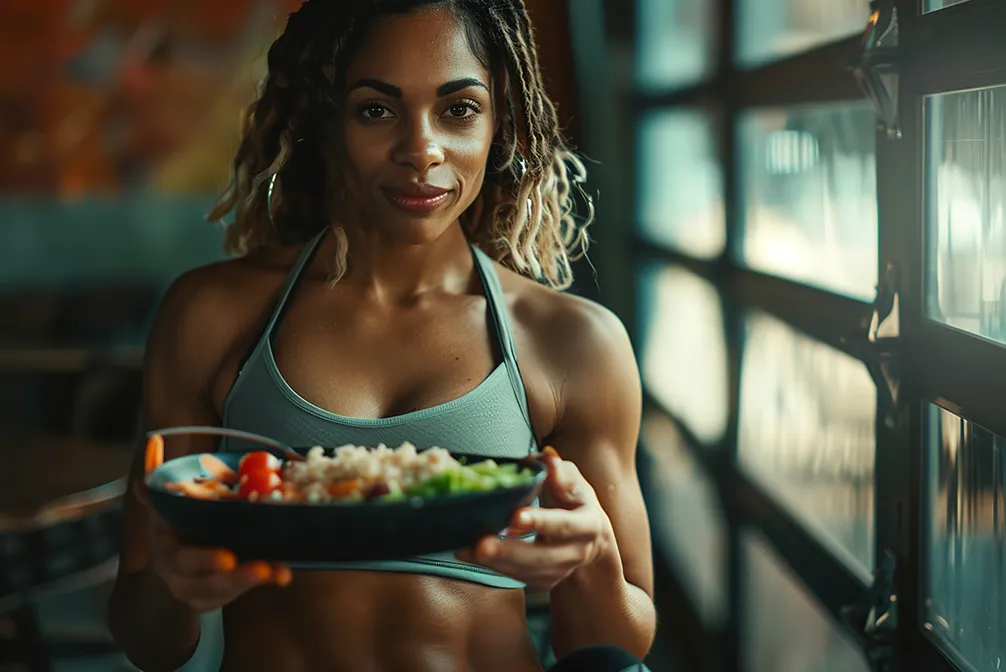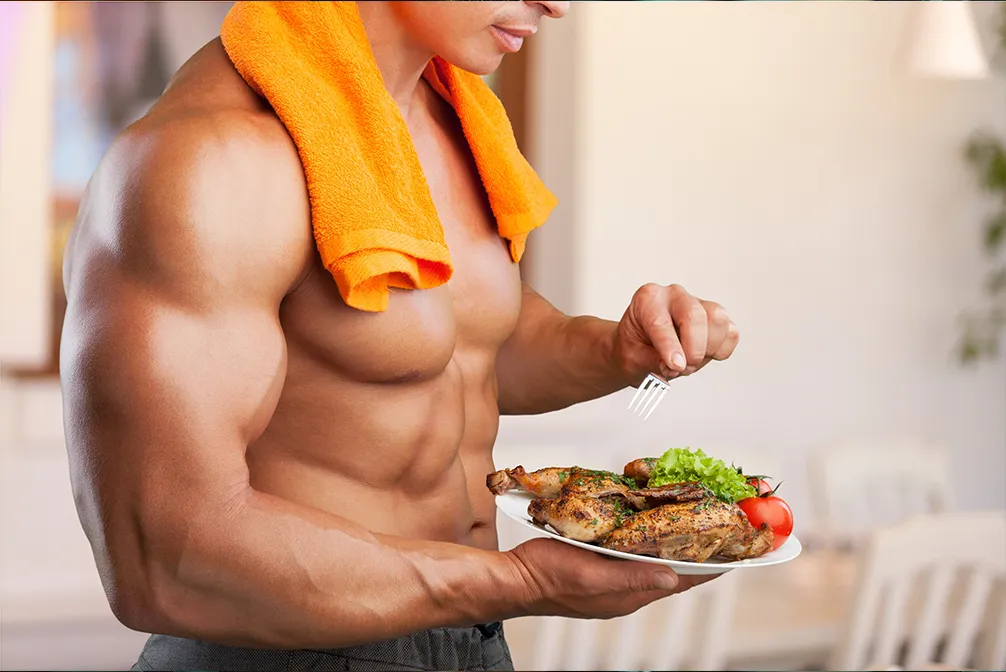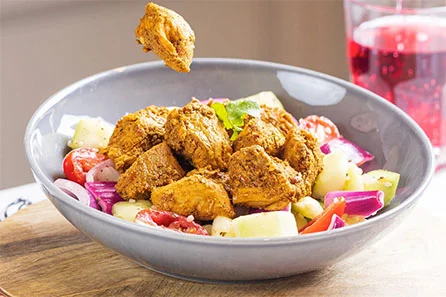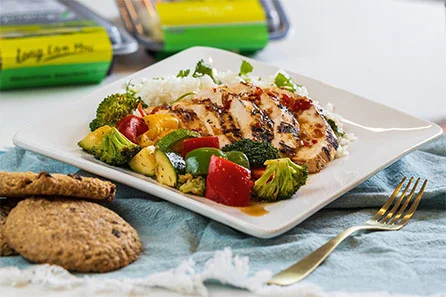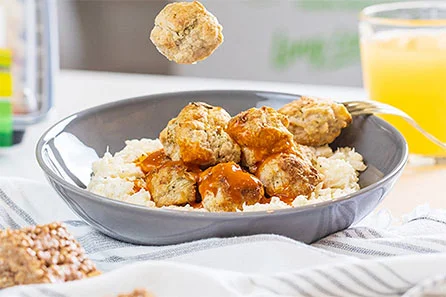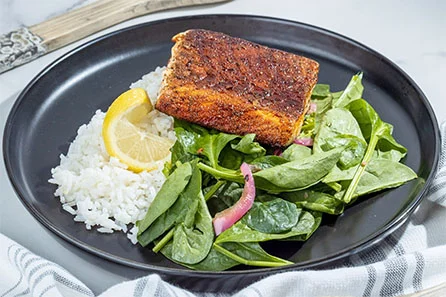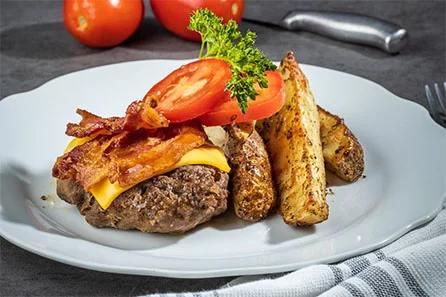Why Meal Prep Matters for Every Athlete
No matter how hard you train, what happens in the kitchen often determines what happens in the gym or on the track. Meal prep gives athletes control over their nutrition, helps maintain energy levels, and makes sticking to a plan easier — especially on busy days.
CrossFit athletes need balanced meals to handle high-intensity workouts, runners need sustained energy for endurance, and bodybuilders need precision to build muscle and manage body composition. Meal prep ensures all three get exactly what their bodies need — without relying on convenience food.
The Core Principles of Athlete Meal Prep
Whether you’re lifting heavy, logging miles, or tackling WODs, every athlete should focus on these principles:
Plan ahead: Set aside one or two days a week for prepping and portioning meals.
Balance your macros: Include the right mix of proteins, carbs, and healthy fats.
Stay hydrated: Water and electrolytes are just as vital as food.
Time your meals: Match your meal timing with training sessions to support energy and recovery.
Keep it simple: Stick with recipes that fit your schedule and taste preferences.
Meal Prep for CrossFit Athletes
CrossFit workouts combine strength, cardio, and endurance — meaning your meals should do the same.
Nutritional focus:
Protein: Repair and build muscle (chicken, eggs, fish, tofu)
Carbs: Provide quick and lasting energy (rice, sweet potatoes, oats)
Fats: Support hormones and energy balance (avocado, olive oil, nuts)
Timing tip: Eat a carb-rich meal 2–3 hours before your workout and a balanced meal with protein and carbs within 45 minutes after.
Sample Meal Prep Plan:
Breakfast: Oatmeal with banana, peanut butter, and whey protein
Lunch: Grilled chicken, quinoa, and roasted broccoli
Snack: Greek yogurt with berries and almonds
Dinner: Salmon, sweet potatoes, and asparagus
Extra Tip: Rotate protein sources weekly to avoid burnout and keep your diet nutrient-diverse.
Meal Prep for Runners
Runners rely on steady energy output, which means carbs are your best friend — but quality matters. Opt for complex carbohydrates that provide long-term fuel instead of quick sugar spikes.
Nutritional focus:
Carbs: 50–60% of daily calories (whole grains, fruits, starchy vegetables)
Protein: For recovery and muscle repair (lean meats, eggs, lentils)
Fats: For sustained energy on long runs (seeds, avocado, olive oil)
Timing tip: Prioritize pre-run snacks that are light but energizing, such as a banana with almond butter or a slice of toast with honey.
Sample Meal Prep Plan:
Breakfast: Whole-grain toast with avocado and scrambled eggs
Lunch: Turkey and brown rice bowl with vegetables
Snack: Apple with peanut butter
Dinner: Stir-fried shrimp with quinoa and mixed veggies
Post-run recovery: Add electrolytes or coconut water to help replace lost minerals.
Meal Prep for Bodybuilders
For bodybuilders, every calorie counts. The goal is to support muscle growth, repair, and definition — all while maintaining a balanced diet that’s easy to follow.
Nutritional focus:
Protein: 1–1.2 grams per pound of body weight
Carbs: Moderate to high for energy and glycogen replenishment
Fats: Keep moderate for hormone support and satiety
Timing tip: Divide your meals evenly throughout the day — usually 5–6 smaller meals — to support muscle protein synthesis and keep hunger steady.
Sample Meal Prep Plan:
Meal 1: Egg whites, oats, and berries
Meal 2: Chicken breast, brown rice, and green beans
Meal 3: Protein shake with banana
Meal 4: Lean beef, sweet potatoes, and spinach
Meal 5: Cottage cheese and almonds
Extra Tip: Pre-portion your meals using a food scale for accuracy, and track your macros weekly using an app like MyFitnessPal.
Practical Meal Prep Tips for All Athletes
Choose one prep day: Sundays or Wednesdays work well for most people.
Batch cook staples: Rice, chicken, or veggies in bulk can save hours.
Use clear containers: Helps with portion control and quick grab-and-go meals.
Label meals by day: Keeps you organized and prevents food waste.
Keep snacks ready: Hard-boiled eggs, protein bars, or trail mix for when hunger strikes.
For more basics, check out our internal guide: How to Track Macros, Meal Prep for Beginners.
This advice is grounded in established sports nutrition principles. Registered dietitians from sources like Precision Nutrition and Healthline Nutrition agree that planning and portion control help athletes stay consistent with their training goals.
Rather than chasing extreme diets, athletes benefit most from consistency and structure — and meal prep provides both.
Common Mistakes Athletes Make When Meal Prepping
Skipping variety: Eating the same meals every week can cause nutrient gaps.
Not eating enough: Especially common for runners and CrossFit athletes.
Overcomplicating prep: Stick to easy, repeatable recipes.
Ignoring hydration: Food is fuel, but water carries it where it needs to go.
How to Stay Consistent Long-Term
The key isn’t perfection — it’s routine. Meal prep works when you make it fit your lifestyle, not the other way around.
Start with prepping one or two meals a day.
Build up to a full week’s plan once it feels natural.
Reassess every month to adjust your portions and recipes.
A little structure goes a long way in supporting performance and progress.
Ready to Start Your Meal Prep Journey?
Now that you know how to plan, portion, and prepare meals for your training style, it’s time to put it into action.
Start small — pick a few recipes you enjoy and prep them for the week.
Your meals don’t need to be perfect; they just need to be consistent.
Want to dig deeper? Check out our related guides:

